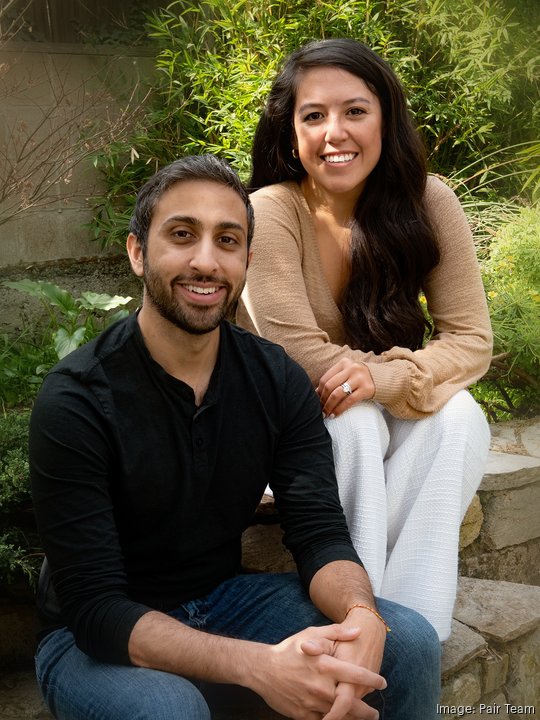
Editor's note: In our 2024 Startups to Watch feature, the Silicon Valley Business Journal and San Francisco Business Times present startups and founders building groundbreaking products and companies in the Bay Area. Pair Team is one of 17 we profiled this year — to read more about our mission and the other startups we're featuring, click here.
Neil Batlivala and Cassie Choi met while working at Forward, a health care startup based in San Francisco that provides high-touch, concierge services to patients without going through insurance. Batlivala was on the software side, while Choi worked on clinical operations as a nurse. But a few years ago, they decided to address a more basic problem in healthcare: improving access to primary care for vulnerable populations, particularly Medicaid recipients.
Their service Pair Team is now available in nine California counties: San Bernardino, Riverside, Los Angeles, Santa Cruz, Merced, Monterey, Fresno, San Joaquin and Stanislaus. San Francisco will be added soon as they push for a national expansion in 2024.
About Pair Team
- Founded: 2019
- Founders: CEO Neil Batlivala, Cassie Choi
- Headquarters: San Francisco
- Employees: 91
- Total funding: $20.6 million
What is the experience like for the patient?
Cassie Choi: When someone walks into, say, a homeless shelter, folks don't just come in with one thing. They may have mental health needs or other clinical issues. It takes a lot of work to coordinate that. We've made it really easy to collaborate with us. And they are paired with a lead care manager on our team — they're bilingual, they're hired from the communities that we serve. It's a deeper cultural competency than a training that we get as clinicians in the hospital. It's really whole person, patient centered care. That patient will also be paired with a registered nurse.
We do not have an app. We found that most Medicaid recipients do have a phone but we have to be mindful of that digital divide and try to close that gap by being able to reach them more accessibly.
What makes this a good time to build a business like this?
Neil Batlivala: This is Medicaid's regulatory moment. These payment models were not allowed a few years ago. California is one of the leading vanguard states from a regulatory perspective and dropped a large regulatory program shift for Medicaid in 2022. We've now become one of the largest providers of these new benefits for high-needs Medicaid patients in the state.
What is the experience like for patient? Is there an app?
Choi: When someone walks into, say, a homeless shelter, folks don't just come in with one thing. They may have mental health needs or other clinical issues. It takes a lot of work to coordinate that. We've made it really easy to collaborate with us. And they are paired with a lead care manager on our team – they're bilingual, they're hired from the communities that we serve. It's a deeper cultural competency than a training that we get as clinicians in the hospital. It's really whole person, patient centered care. That patient will also be paired with a registered nurse.
We do not have an app. We found that most Medicaid recipients do have a phone but we have to be mindful of that digital divide and try to close that gap by being able to reach them more accessibly. So, SMS or phone calls. During the intake, we ask, do you have minutes? When do they renew? Would you prefer a text or phone call? We see it split about 50/50.
Have you have you looked at similar programs in other regions of the world as inspiration?
Choi: In Camden, New Jersey, there's a really great organization called Camden Coalition. They paired individuals with community health workers and found that they didn't really reduce costs the way that they were anticipating. You really need to have deeply integrated processes and structures and contracts with these organizations. When there was a lot of movements around bringing healthcare aid to Africa, a lot of folks started taking a text and phone call based approach. There wasn't internet, but there was a way to access these more remote areas of Africa. You can't just think "apps" like we do in America. There are other ways to access folks who really need that help and don't have access to those devices.
Batlivala: Costa Rica actually did an entire push towards what they called community-oriented primary care — providing primary care services in non-clinic settings. If you look at OPEC countries, for every dollar that they spend on healthcare services, they spend about $2.50 on social support services. For every dollar the U.S. spends on healthcare services, we spend about 90 cents on social support services.



